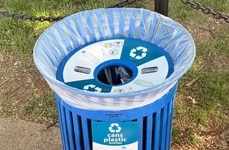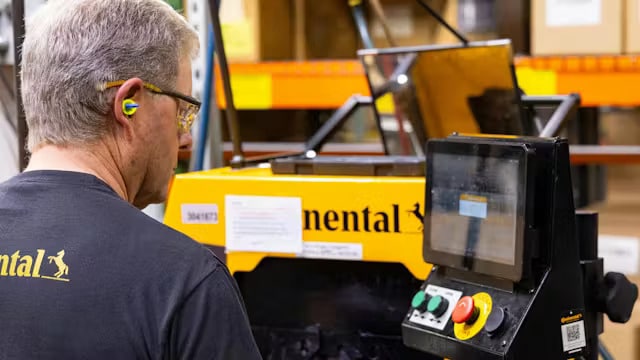
Continental Launches an Initiative to Promote Equipment Circularity
Georgia Wray Norsten — April 25, 2025 — Eco
References: fleetowner
Continental’s ContiTech division has introduced a new Crimper Recycling Program to celebrate Earth Month, designed to promote circularity in industrial equipment use. The program encourages customers to trade in old or obsolete hydraulic crimping machines, which are then responsibly recycled. Participants receive discounts on high-performance, energy-efficient crimpers manufactured in the United States. The initiative reduces landfill waste and material intensity while helping clients modernize their operations.
Continental’s move reflects a broader industry shift toward closed-loop manufacturing systems and extended product stewardship. It also aligns with the company’s long-term sustainability goals, which include reducing carbon emissions and minimizing environmental impact throughout the product lifecycle. By taking responsibility for end-of-life equipment, Continental is helping shape a more circular industrial economy while offering clients tangible upgrades in performance, safety, and efficiency.
Image Credit: fleetowner.com
Continental’s move reflects a broader industry shift toward closed-loop manufacturing systems and extended product stewardship. It also aligns with the company’s long-term sustainability goals, which include reducing carbon emissions and minimizing environmental impact throughout the product lifecycle. By taking responsibility for end-of-life equipment, Continental is helping shape a more circular industrial economy while offering clients tangible upgrades in performance, safety, and efficiency.
Image Credit: fleetowner.com
Trend Themes
1. Circular Industrial Equipment - Manufacturers are increasingly adopting strategies to recycle and repurpose industrial machinery, reflecting a shift towards sustainable production practices.
2. Closed-loop Manufacturing Systems - Industries are implementing closed-loop systems to ensure end-of-life products are reintegrated into new production cycles, reducing waste and maximizing resource efficiency.
3. Equipment Modernization Incentives - Offering incentives for trading in outdated machinery is becoming a popular approach to encourage the transition to more energy-efficient and high-performing industrial equipment.
Industry Implications
1. Hydraulic Machinery - The hydraulic machinery industry is undergoing a transformation towards sustainability, driven by recycling programs and the adoption of more efficient technologies.
2. Sustainable Manufacturing - Sustainable manufacturing is gaining traction as businesses actively pursue initiatives that lower environmental impact and promote circular economies.
3. Industrial Equipment Upgrades - The trend of upgrading to advanced machinery is reshaping the industrial equipment sector by enhancing operational efficiency and reducing energy consumption.
7
Score
Popularity
Activity
Freshness























